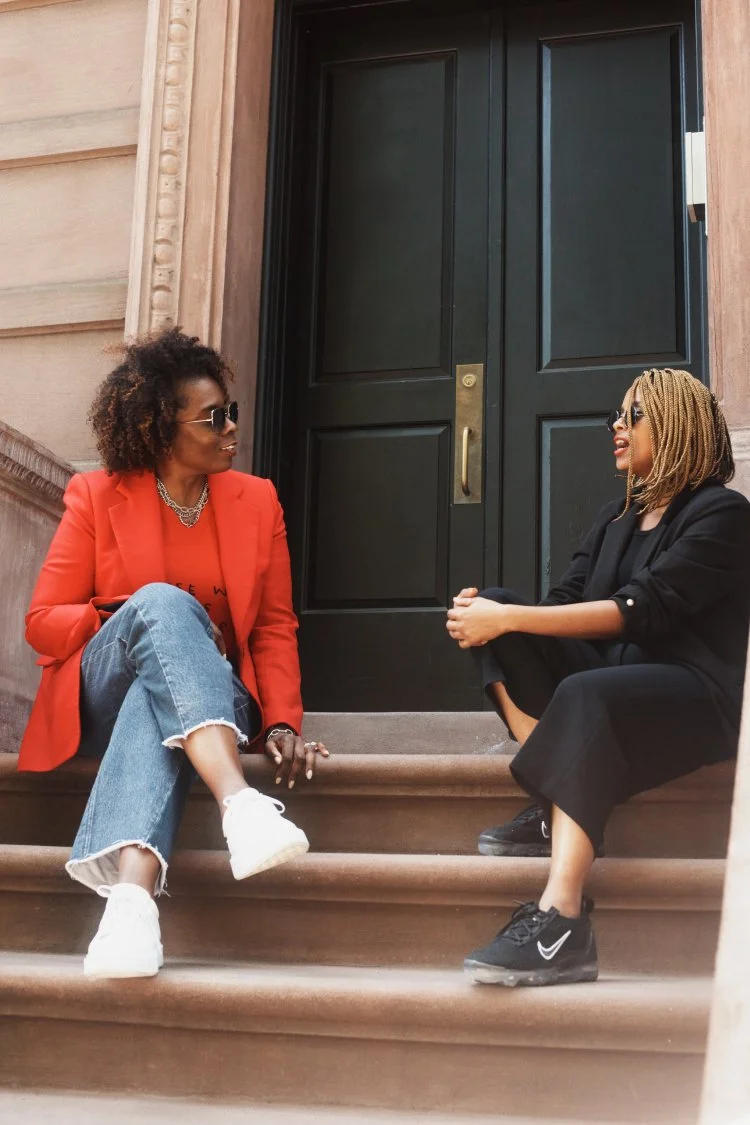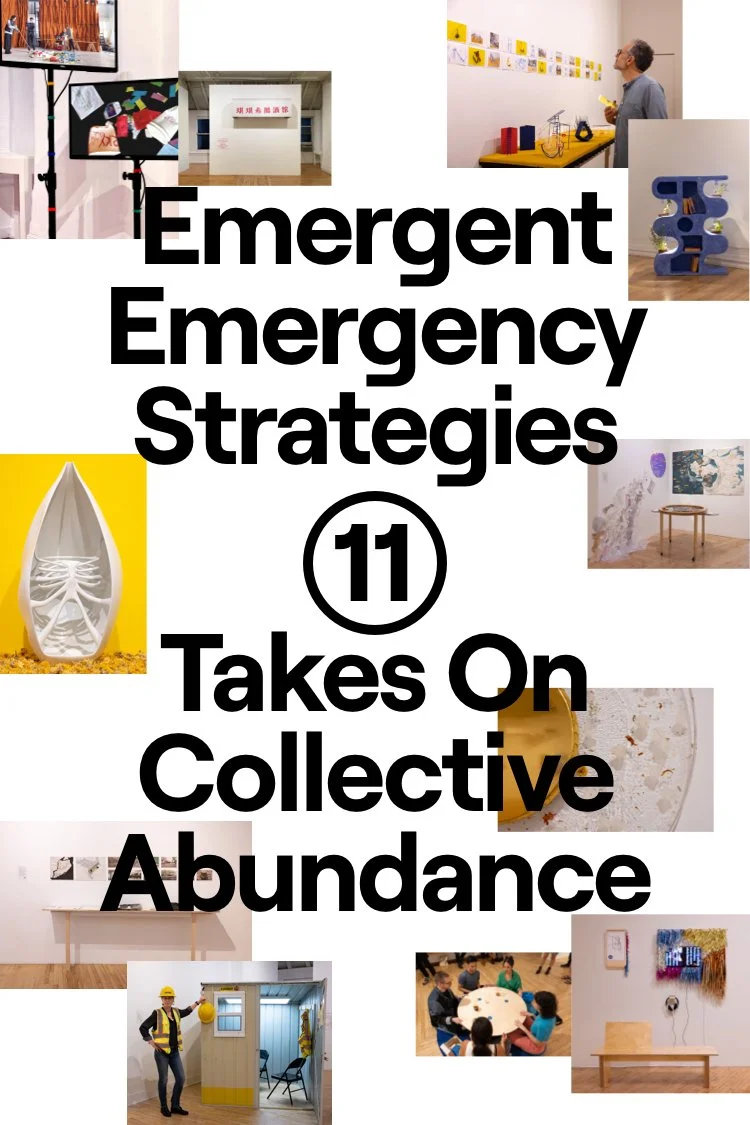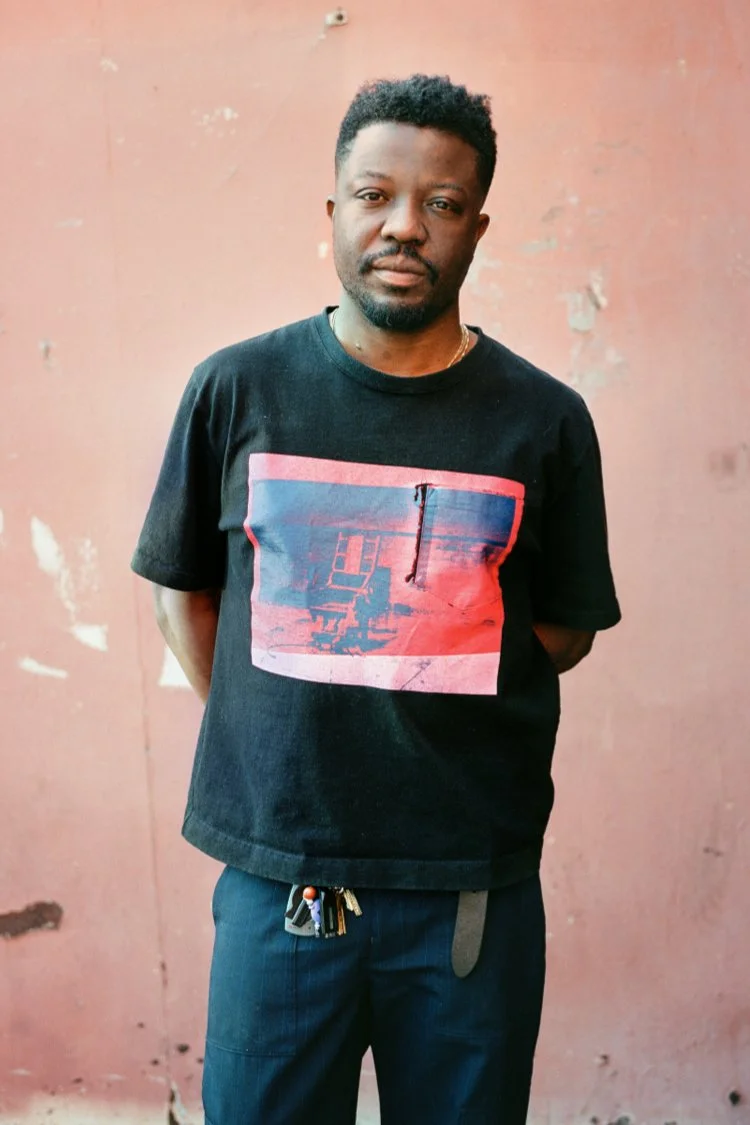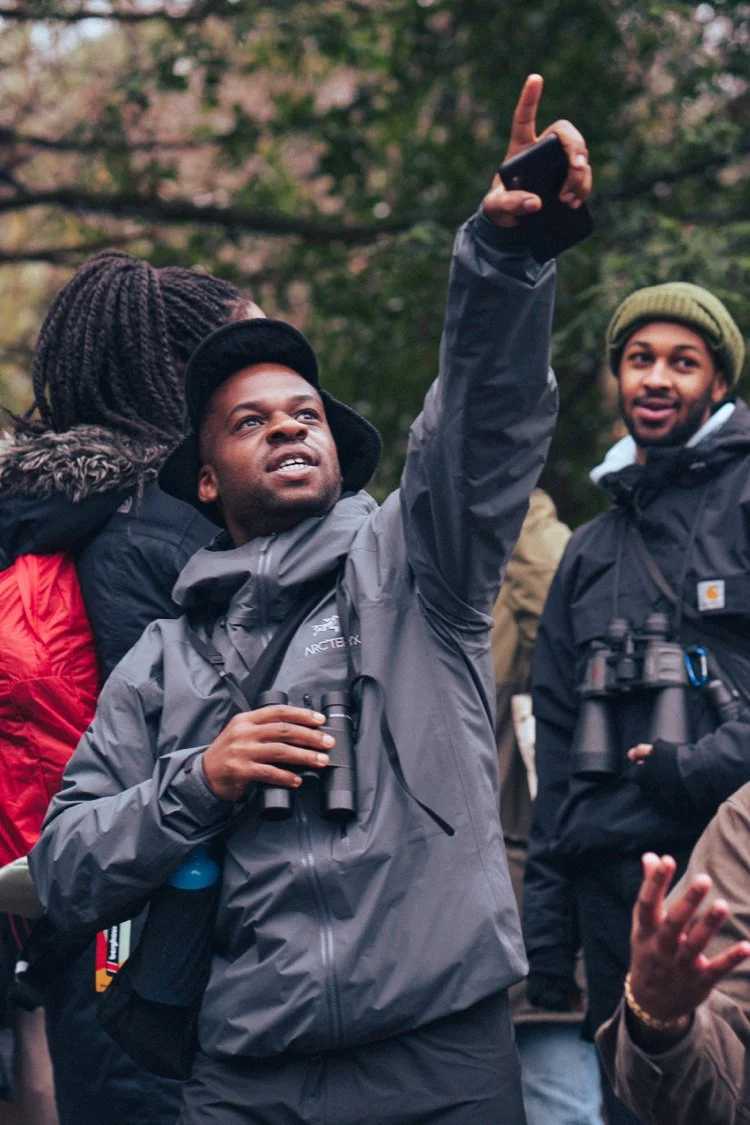Mutante on the future of journalism
A conversation with Mutante
Photography by Manuela Montañez
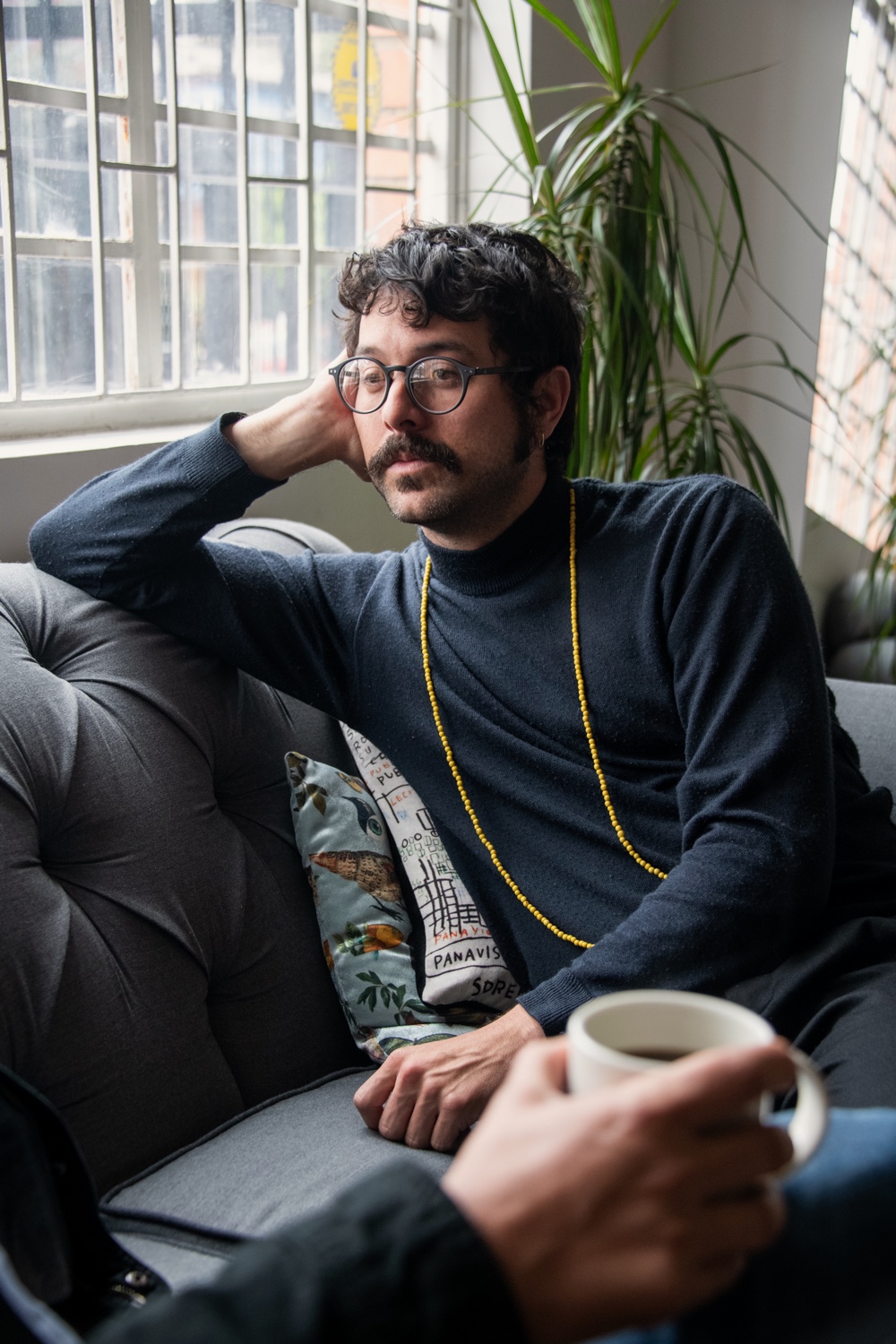
Nicolás Vallejo
Two years ago, a journalist and a creative director came together to generate a “new species of conversation” in their native Colombia. Deem spoke with Mutante cofounders Nicolás Vallejo & Juan Camilo Maldonado Tovar about a model of journalism that could change the way we speak about, understand, and act on the problems of contemporary society.
I.
We met more than a decade ago, when we were studying at the same college. We didn't talk much at that time, but we got to know each other later through our mutual interest and work in journalism. Our relationship started through correspondence. Nicolás founded a Latin pop culture magazine in Miami called Level and recruited Juan Camilo to write for it. We built a profound and intimate friendship around our shared belief that through journalism we could generate change in the difficult, violent, but also beautiful society that we both came from.
1. Valorem S.A. is a Colombian conglomerate created in 1997; its holding sectors include media and entertainment, retail, transportation, and environmental industries.
Around that time, Juan Camilo was developing his career in journalism as a local news editor at the Colombian newspaper El Espectador. Later, Nicolás returned to Bogotá as the editor of the youth-centered music and culture magazine Shock. Both publications were owned by the same Colombian media conglomerate—Valorem S.A.¹ Some years later, around 2013, we both left our roles in order to start VICE Colombia. Juan Camilo ran the editorial team, Nicolas oversaw music coverage, and together we developed a very special channel called ¡Pacifista!, which was dedicated to war and peace in Colombia.
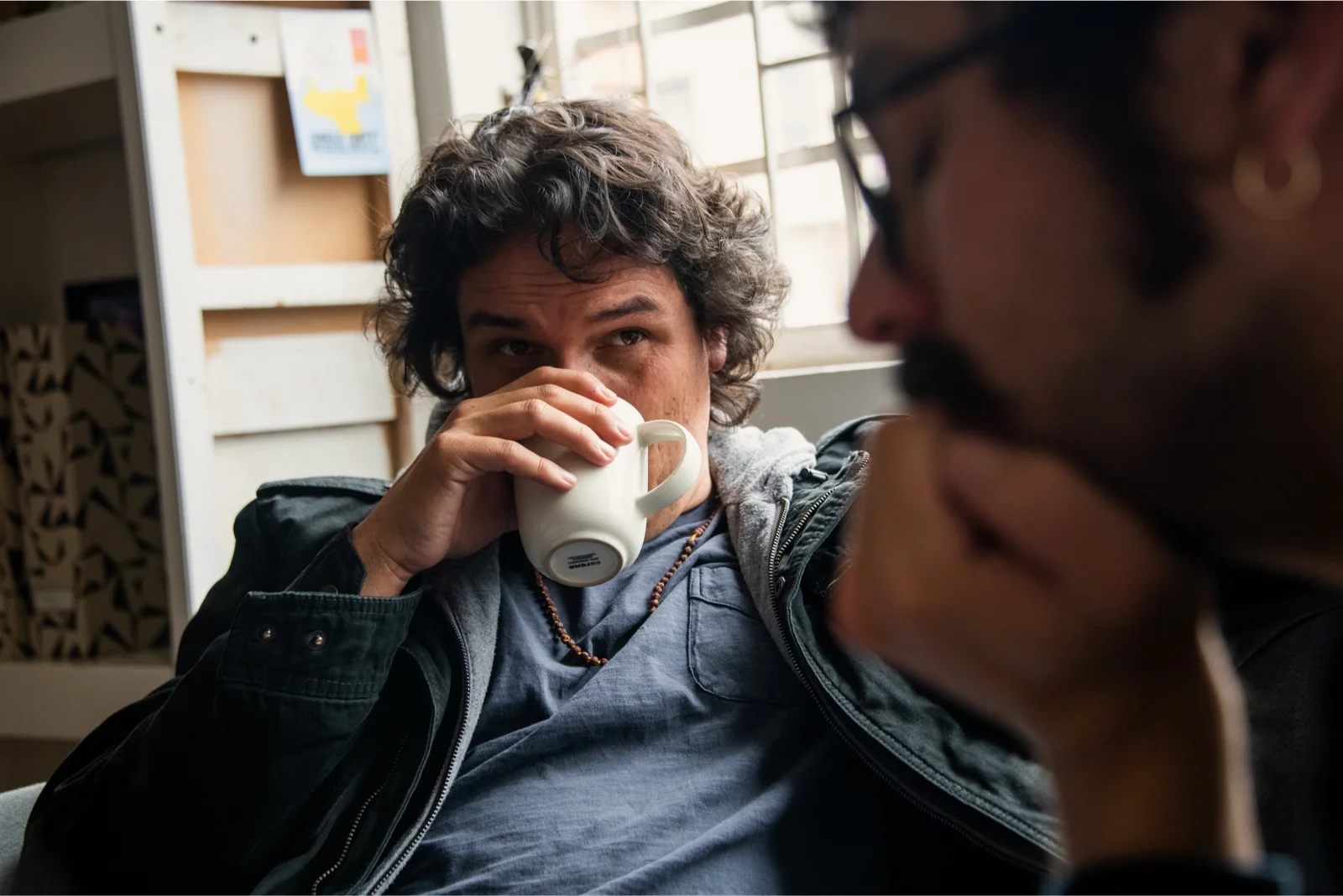
Juan Camilo Maldonado Tovar
Over time, we began to harbor differences with management. In particular, we raised concerns about the role of journalism in our society and the conflicts of interest that surrounded its models of financing. The more this crisis advanced in the industry, the more evident it was. We are referring specifically to the new ways that sponsored and branded content began appearing in the media industry in general, and not just at VICE Colombia. We were starting to see private industry giants putting a lot of money into media at the very moment that media was supposedly reporting on issues that in some way or another related to those same companies.
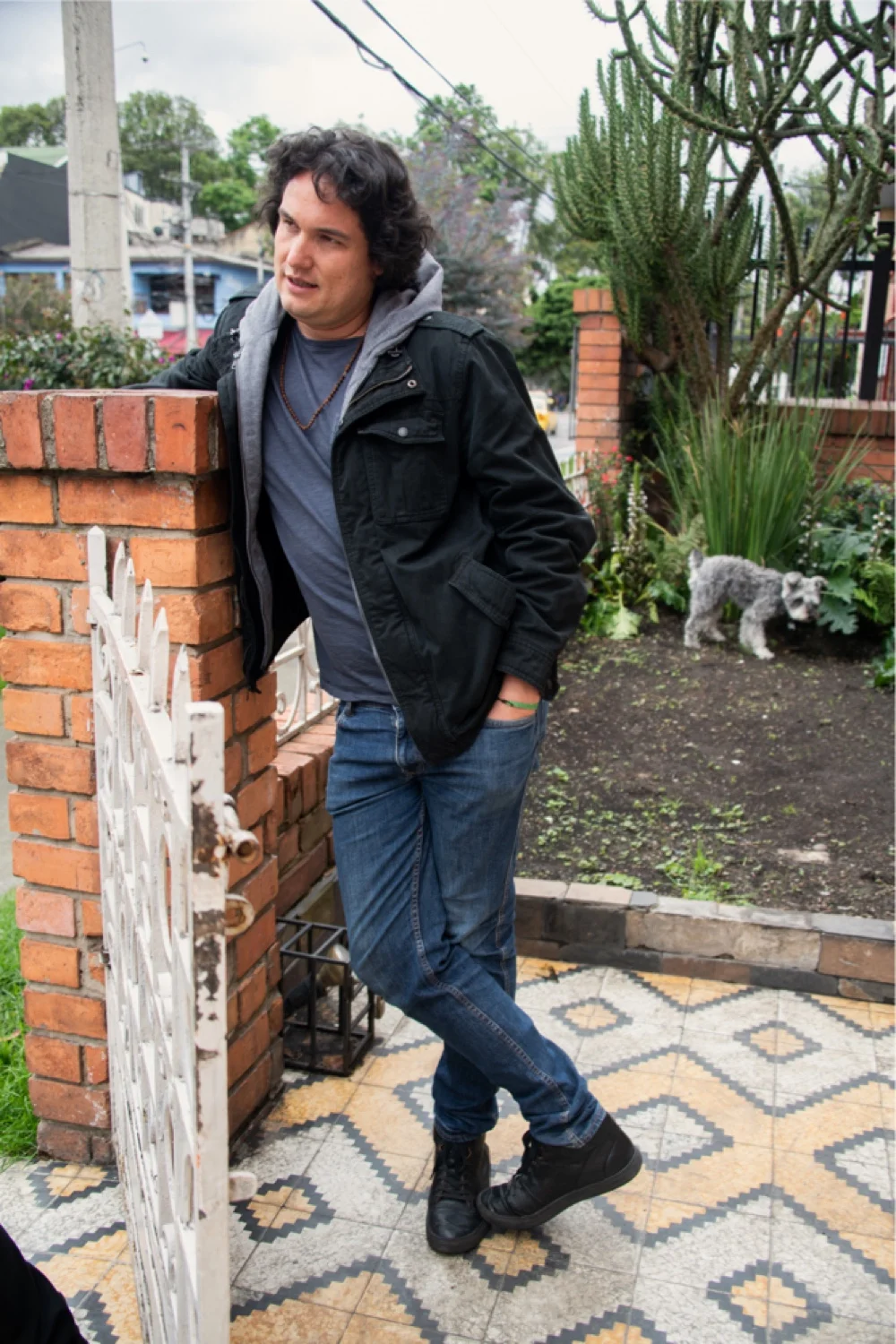
“How can we make people fall in love with the idea that independent journalism is something valuable and worth paying for?”
Let us give you an example. A web streaming service launched a television series about Pablo Escobar. Our reporters wanted to write about how bad it was that this series was portraying our country with a sensationalist story of narco-traffickers and kingpins. But, at the same time, we were running an ad campaign for the series on our webpage. If you don't have a model that forcefully differentiates editorial from commercial, you can easily begin censoring your content, even inadvertently, to protect your business. These dilemmas arise again and again, and this boundary has only become increasingly unclear. It is difficult for editorial interests to be protected at the expense of brand interests because brands are paying.
2. Caudillo is a Latin American term dating from the 19th century that describes a political or military leader who achieves an unprecedented and often socially disruptive scope of power through charisma and the establishment of a patronage system.
We were also worried about the way journalists behaved. At least in Colombia, journalism is very personalist. Journalists talk to audiences like if they were caudillos², a very Latin American way of handling public issues that centers a public persona rather than an institution. Also, we live in a society where traditional investigative journalism alienates the majority. Even in cases of urgent content, journalists continue to dispense crucial messages in formats that aren't widely consumed, thinking that people are going to sit down and read a ten-thousand-word article or be able to follow a news story with complex plots and terminology.
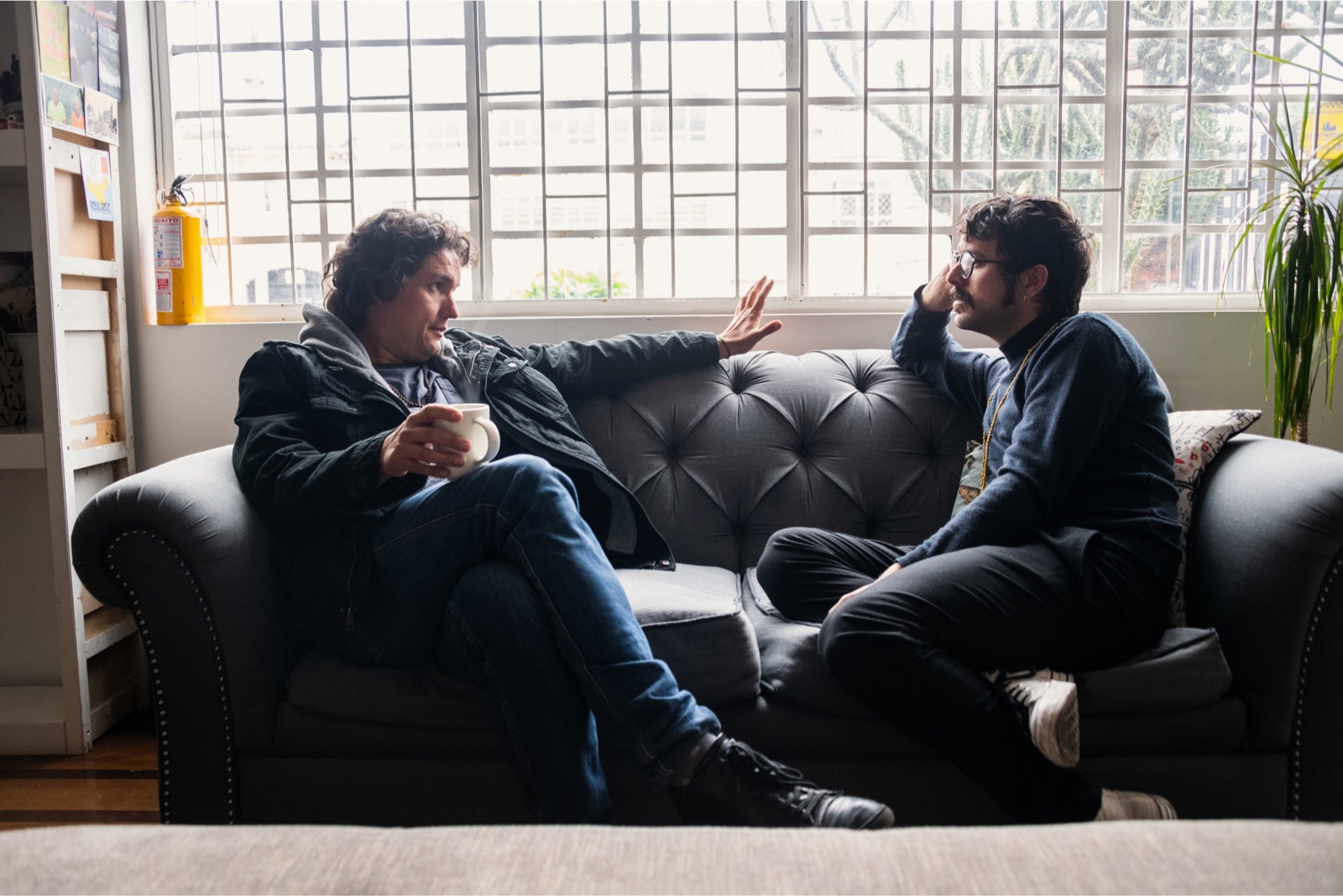
Juan Camilo Maldonado Tovar & Nicolás Vallejo
We asked ourselves, honestly, how does the average person consume, produce, and interact with media? If we really wanted people to participate, we needed journalism to communicate in the same way that they did. Another thing we didn't like was how journalism described a world in crisis. We felt that a lot of people were not reading the news because they felt it was only bad news all the time. We began to wonder if we could use journalism not only to produce a thoughtful and accurate diagnosis, but to foster a conversation around what to do next: a more horizontal relationship with the audience that would involve constructing knowledge and imagining solutions together. Needless to say, we felt that journalism needed to evolve.
We began to think seriously about how we could make these changes. How can we involve audiences to be more active around the subjects that matter? How can we work independently? How can we make people fall in love with the idea that independent journalism is something valuable and worth paying for? In the midst of countless conversations, Mutante was born.
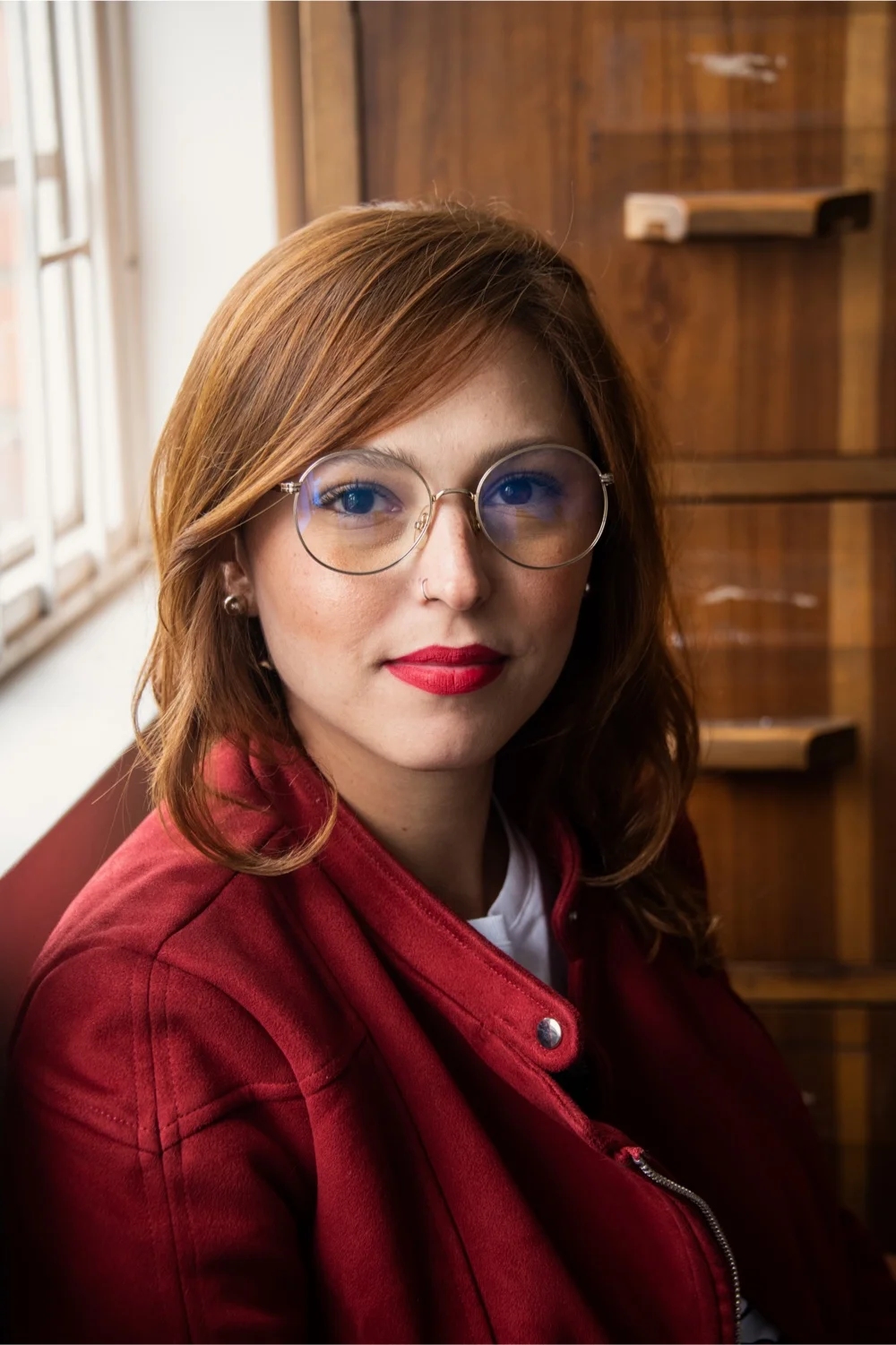
Laura Muñoz Naranjo
“Our methodology was inspired by therapy, in particular the process of moving from identifying a problem to actually solving it.”
II.
Here we are, two years later. When we started out, Juan Camilo was hopeful but Nicolás was disillusioned. Juan Camilo insisted on the importance of strengthening journalism’s role in society. Nicolás was distrustful, even paranoid. He had stopped watching TV, reading the newspapers, and using social media. While Juan Camilo kept reporting and writing, Nicolás had retreated from the apocalyptic view of the world that the media gave. This dialectical relationship was pivotal for Mutante. It drove us to a conclusion: if we are going to do this, we need to explore emotions other than fear. We need to explore hope.
From then on we understood Mutante’s goal: to create informed conversations around public issues that matter. With that in mind, we designed an editorial methodology that involves, and actually depends on, our audience. This methodology was inspired by therapy, in particular the process of moving from identifying a problem to actually solving it.
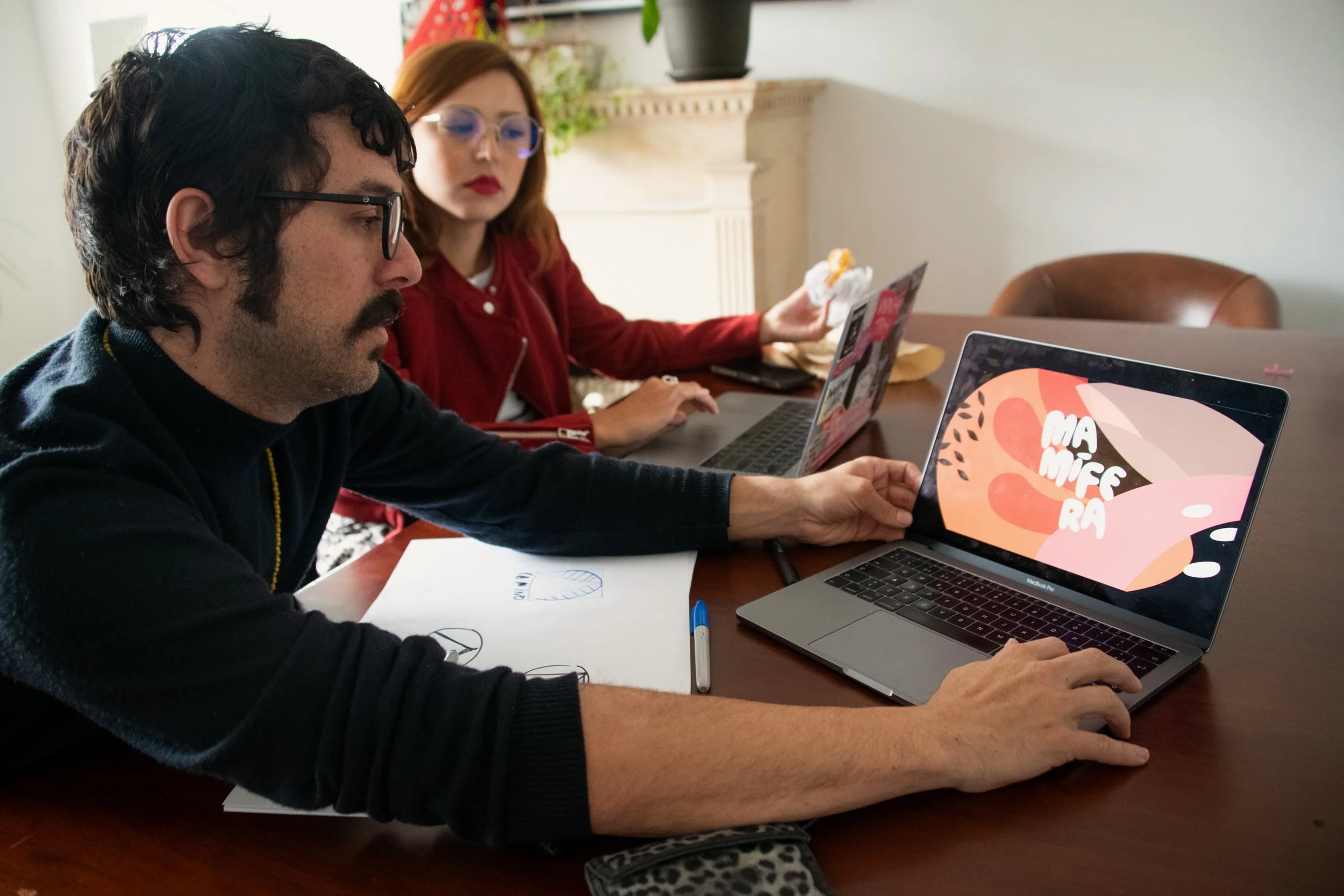
Nicolás Vallejo & Laura Muñoz Naranjo
3. The Freedom of Information Act (U.S.), in effect since 1967, gives the public the right to request and access documents or records from any government agency, and has since been used to uncover a variety of misconduct, misinformation, corruption, and waste.
For most media outlets, once they publish their “findings,” that’s it. On to the next thing. For us, investigative journalism is a place to start, not an end to reach. We want to harness our findings to instigate something further. So, we start with a problem. Around that problem, we design “conversation cycles” that unfold over a period of time, usually one month. We start by thoroughly researching that problem and then posting chapters of that investigation in order to start the conversation with our audience. Each week of the month is dedicated to a particular dimension of the problem. The days of the week are then assigned to phases, to guide the conversation. Mondays and Tuesdays are to Speak; on these days we ask questions and invite people to speak about their experiences. We listen to individual stories. For this, we have created various testimonial formats, from written to visual to audio. Wednesdays and Thursdays are to Understand; we work with our team, hand in hand with communities of experts (each conversation has its own community chapter), to process and present information. We create very comprehensible content, such as infographics. We then share this content. Fridays are to Act; we design manuals, guides, protocols, etc. so that people know what to do. Sometimes we push, with our audience, for accountability actions, such as collective FOIA (Freedom of Information Act)³ requests. And every day we activate participative formats like questions, surveys, and #challenges to move the conversation forward.
Our editorial identity and product design was key during this process. We were struggling with the visual aspect of all of this. One night out, Nicolás met Lola, our designer, at a party. He told her about our vision for the project and she volunteered to take on the challenge of creating the visual concept. The design system she created made all the difference. She wanted Mutante to be accessible—something people could interact with and make their own. The design had to enable and encourage audience participation through social channels. The audience would always be the primary concern. How could we honor the users’ experiences? Respect their perspectives? Invite them on the journey? We also needed to be very careful because we knew the subjects we would be dealing with were heavy, painful, and dark.
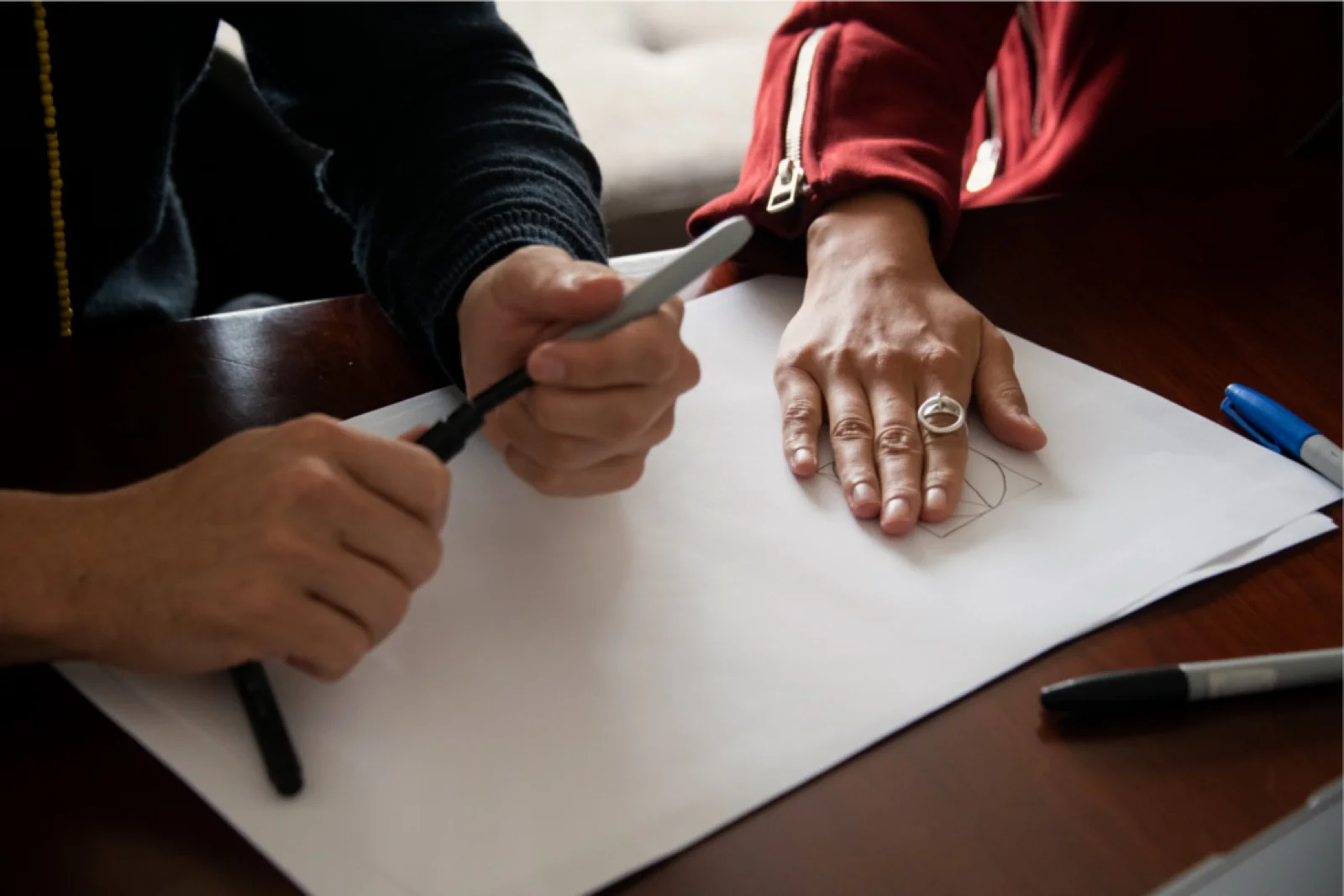
Our first topic, #HablemosDeLasNiñas (Let’s Talk About Girls) began, like most journalistic projects, with observation and instinct. We knew that girls were a very vulnerable portion of our population and that their voices were not being heard. That sense was increasingly confirmed by frequent reports of girls and adolescents being raped, the vast majority by family members. There are between 30 and 60 daily reports of girls being abused in Colombia. Nevertheless, this was not being dealt with in any meaningful way by the state or the media. We saw clinical summaries of statistics being circulated. Scandals with no further analysis of the problem. Senseless treatments that achieved nothing and left us distrustful and hopeless. Our newspapers didn’t really seem to care that every day the equivalent of a classroom full of girls was being broken for life by the very people who should be protecting them. So, what could we do about it? How would we deal with a subject of this scope and magnitude, especially as our first project? How would we manage it? We had many intense but also beautiful and constructive conversations around how to tackle this, and how to push it forward into something positive.
As strange as this may sound, we were dealing with a subject that was absolutely normalized in Colombian society. We had to think carefully about how to talk about it without being sensationalistic. We felt this conversation needed to be loving and healing, no matter how awful its content. We were also very aware of our own perspective, as at that time Mutante was a project founded and led by two men who were also coming from periods of personal revision and therapy and working on issues such as gender deconstruction and sexuality. At that time, a daring trio of feminists (Tatiana Forero, María Fernanda Cepeda, and Vanessa Cuervo), who we consulted before this exercise, suggested that we sit down as a team and consider—through a workshop facilitated by them—our own place in this system of inequality, privilege, and abuse. This turned out to be a very emotive and crucial exercise that actually shaped how Mutante functioned thereafter. For every problem we take on, we also try to see how we fit into it, personally.
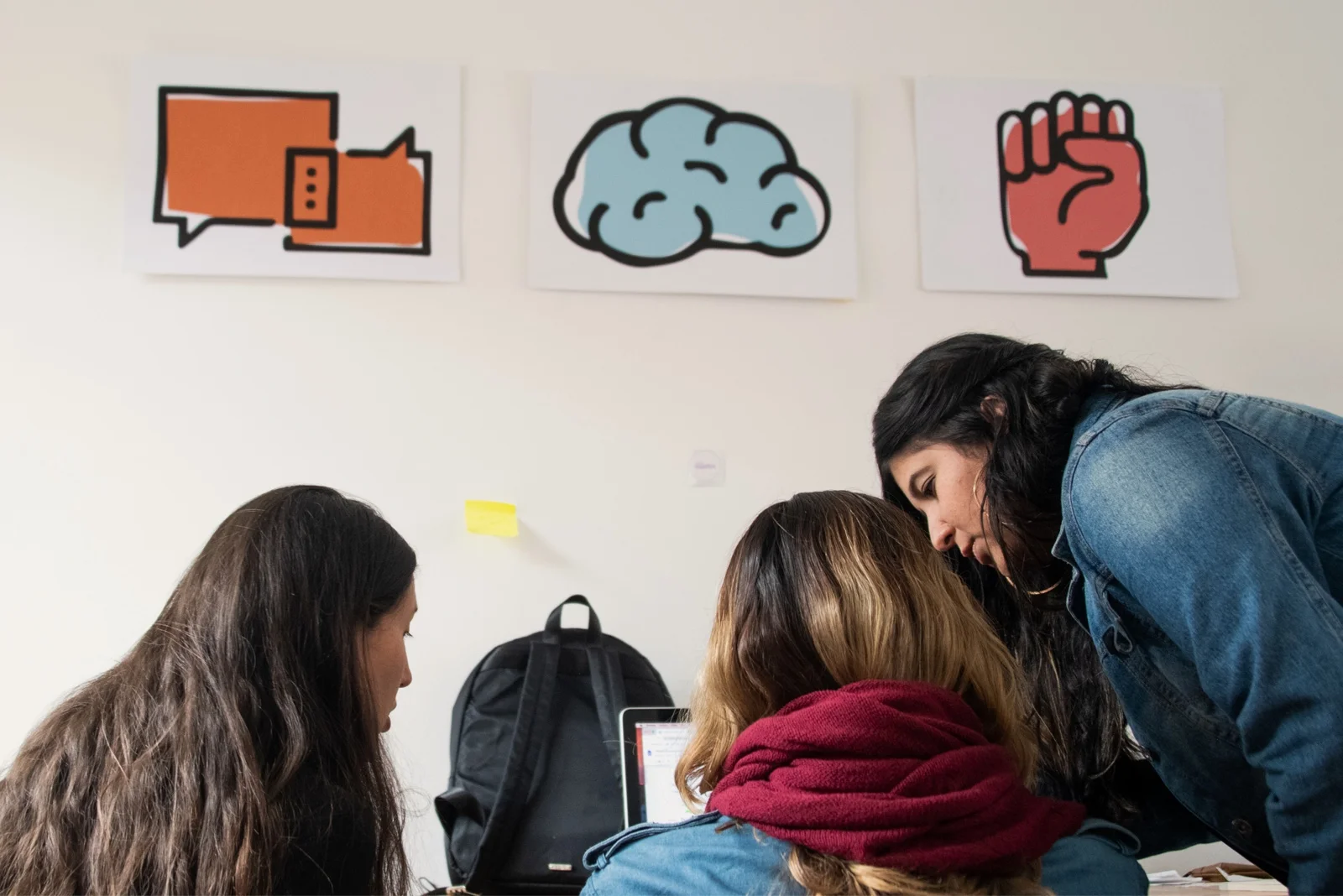
Members of the Mutante team in their office in Bogota
When #HablemosDeLasNiñas finally kicked off in October 2018, we began by asking women who had been abused during their childhoods to share their testimonies. We received more than sixty during a cycle of four weeks. That was very challenging. We’re a small crew. Also, we are journalists. We provide information, but we are not trained with the skills to speak to people who are sharing their stories of personal trauma. Our team did everything it could to make sure it was up to the task of responding, and responding the right way. Out of over sixty victims speaking with us, only one person shared that she was dissatisfied with the exercise. To voice harm without harm—that’s a challenge.
We believe we handled this to the best of our ability, but we also want to emphasize that it was extremely stressful. A lot of these women, many of whom were now adults, had never talked about their experiences of abuse before, with anyone. We felt we had a massive responsibility, not only to the topic but to every individual who trusted us with their own vulnerability. We also had to take care of ourselves. Most of our editorial team members are women. So, we set up space and time for us to collectively process what we were going through.
We were able to identify patterns in the testimonies. For example, silence. What does this silence tell us about society? Many of the women felt their families, and society in general, haven’t developed the emotional skills to hear them or to help them. The very cultural context in which they live makes it difficult for them to speak. Also, most of them never sought justice. And if they did, nothing happened. Worst of all, the judicial system revictimized them. All of these realizations informed our content. As part of our methodology, we consulted with a community of experts and thanks to them we were able to recommend victims with next-steps. For example, we developed directories of organizations that provided therapy and other professional assistance. We designed tools for how to seek legal action, what to do when this happens to someone close to you, and what type of organizations can help in the process. Once we had studied all the stories we received, we created one larger piece of analysis that summarized and synthesized everything we had observed.
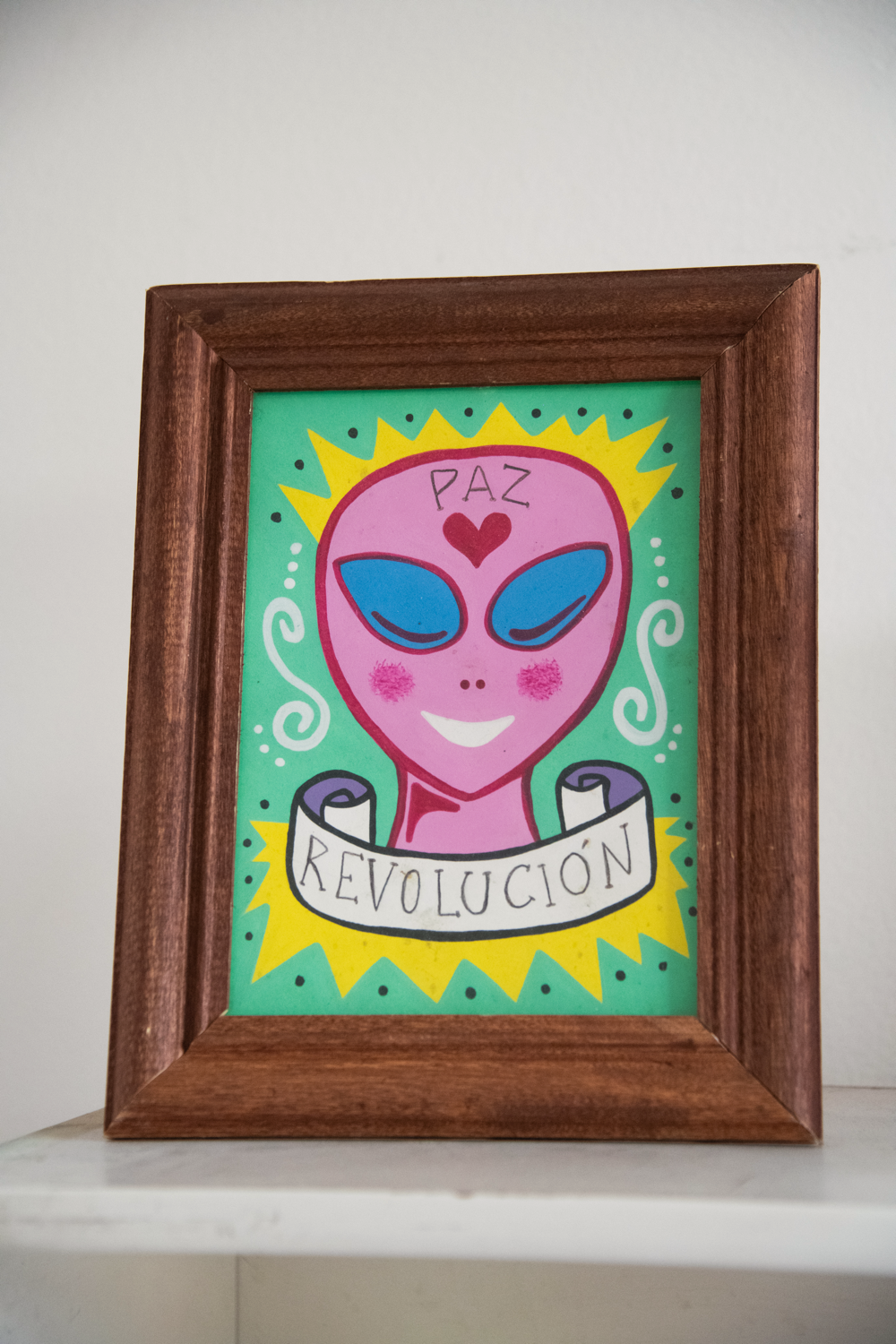
“In the end, it's not about controlling or selling content or competing for clicks.”
III.
It is important to understand that Mutante is not a platform in the traditional sense. We do not create exclusive content. Anyone can share or republish our work. If there are so many platforms with hundreds of thousands of viewers or readers, why not give them content? This way, by collaborating with other outlets we add value to pre-existing platforms with built-in audiences and are able to serve a larger crowd. We have noticed that the more we share information with other media outlets, the more they become incentivized to generate their own content about these problems. Sometimes they don’t even want to republish our material; they want to find out what’s happening themselves. It’s beautiful because, in the end, it's not about controlling or selling content or competing for clicks. It’s about activating a massive conversation. It’s like a new Darwinism. It's no longer the “survival of the fittest.” Rather, we think of ourselves more like a cell within a larger body. We survive thanks to an extensive network of interdependence and collaboration. Everything we do is about making information more available. We may be small but our conversations are big.
We believe this is a movement, that it will create change, and that revenue will come from that. We believe that if we make people and organizations understand the value of large-scale, constructive public conversations around the problems that our society faces, they'll help sponsor a new generation of independent journalism.
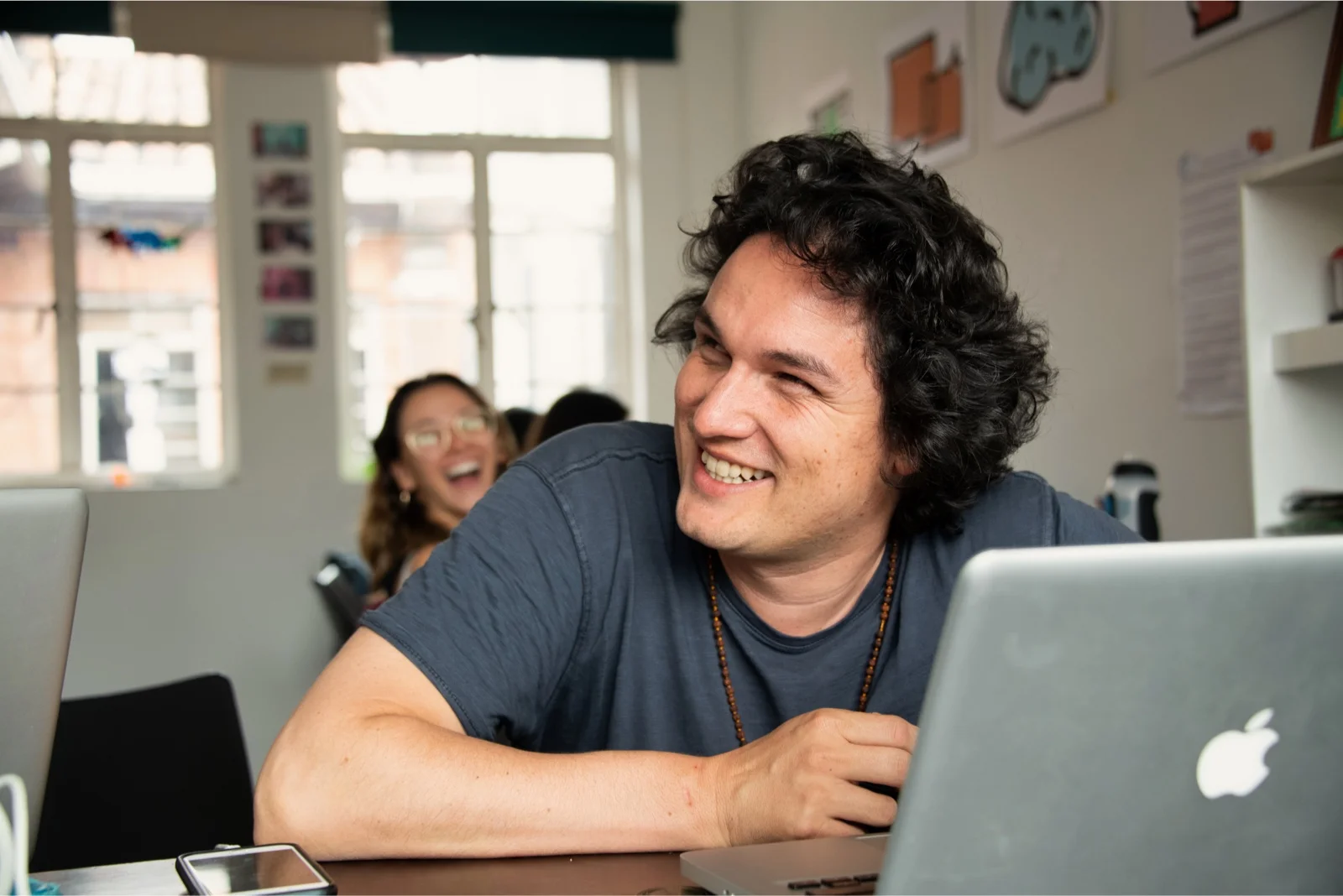
Juan Camilo Maldonado Tovar
“The focus of all our work—our obsessions, really—are inequality and complexity.”
Our business model has three sources of income. First, we are creating a membership program. We know this will take time, but we are working patiently. Second, we're reaching out to civil society organizations who invest in causes and subjects we’re covering. We’re helping them understand that it is in their best interest to give money, no strings attached, to journalists and communicators like us to generate conversations around subjects that they believe are important. This is a long road. They are used to investing in communication strategies that promote their specific agenda and world view (marketing). We are also reaching out to international organizations that support independent journalism, although we're truly committed to making the business model work beyond relying on the support of any one philanthropic organization. We're actually working towards being independent from any sponsorship at all. Third, we run a commercial studio called Camino. It’s a totally separate entity and was founded before Mutante, as a content studio focused on social change. In this model, Camino and Mutante support one another while we maintain a rigorous boundary between editorial and commercial work. Even though we uphold the same ethical values for both, there is a permanent and ever-present distinction between what we do in Mutante and what we do in Camino.
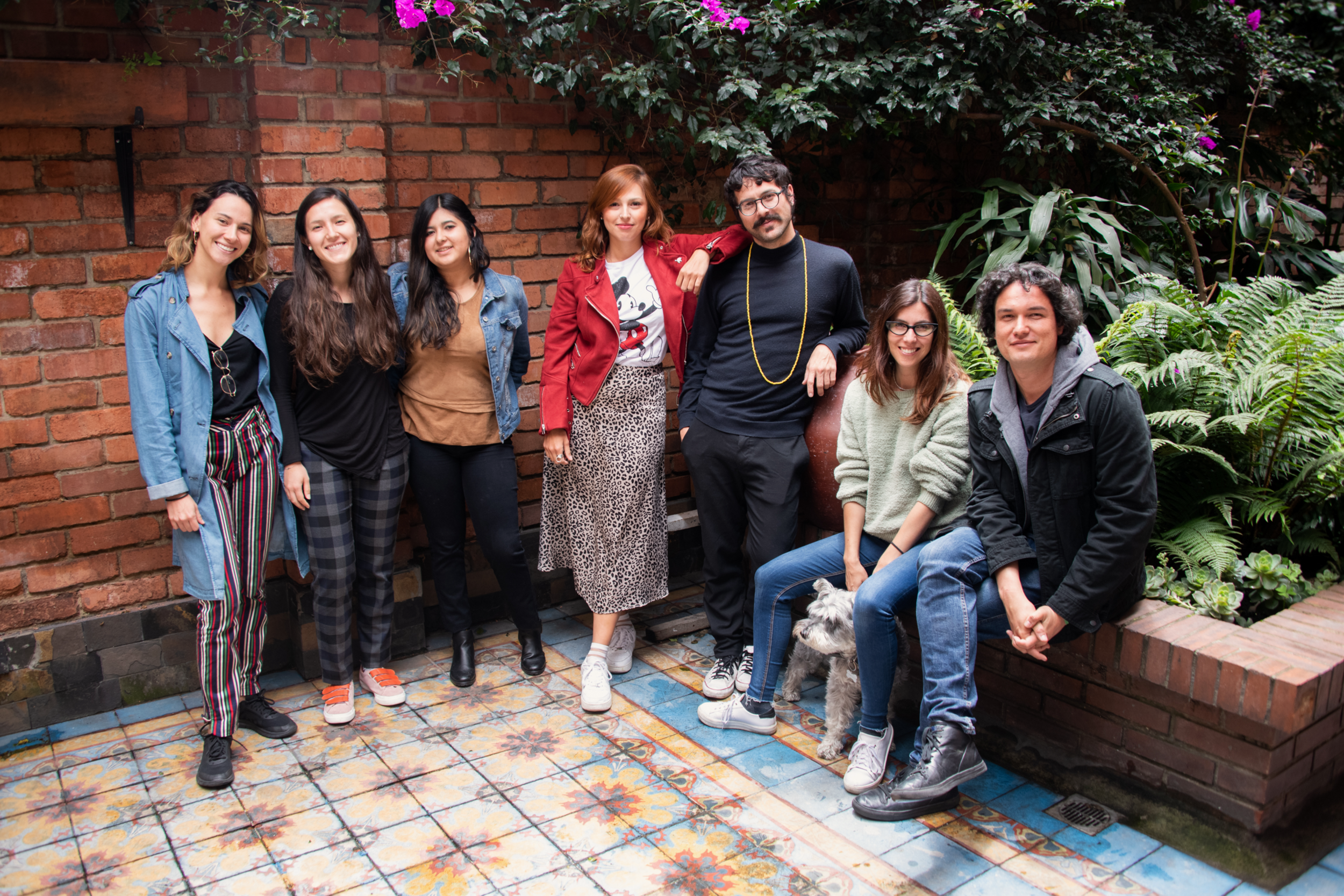
The Mutante team, Bogota, 2019
The focus of all our work—our obsessions, really—are inequality and complexity. Most problems aren't easy to understand. We want to take the time to do this right. Many of the most pressing subjects in a country like Colombia revolve around inequality of some kind. We will continue to practice and perfect strategies for communicating with our audience. We will continue to shed light on underreported and taboo subjects. Some of these may be quite broad, such as death, violence, discrimination, drugs, love, fear, money, the environment. But many of these are connected. The conversation we are working on now is called #HablemosDeLasTrabajadorasDomésticas (Let’s Talk About Domestic Workers). Domestic work is a deep problem in our country—almost a contemporary slavery—with intersecting variables such as gender-based violence, displacement (related to our internal conflict), discrimination, economic oppression, and institutional negligence. In Colombia, hundreds of thousands of women suffer violence linked to domestic work. All of this has to do with legacies of social stratification and our colonial past. And yet there is little to no public conversation about it. We truly believe we can create Latin American, or even global, conversations about these issues. If you do too, raise your hand and speak up!
Contact us: jcmaldonado@mutante.org / nvallejo@mutante.org
Follow us: @mutanteorg
Donate: https://www.mutante.org
